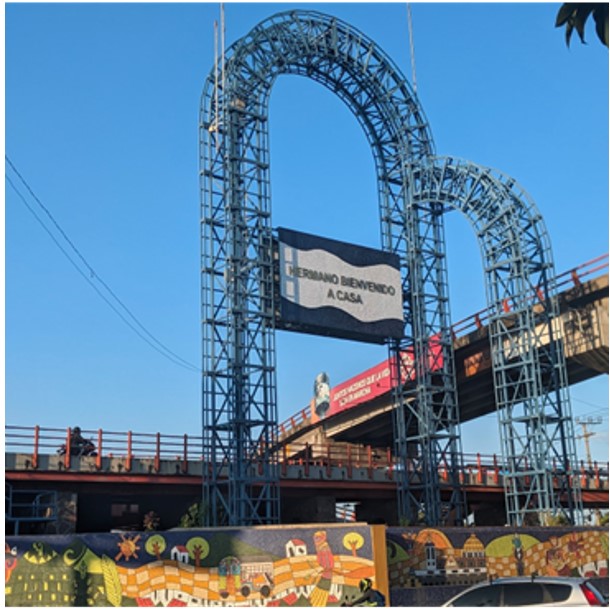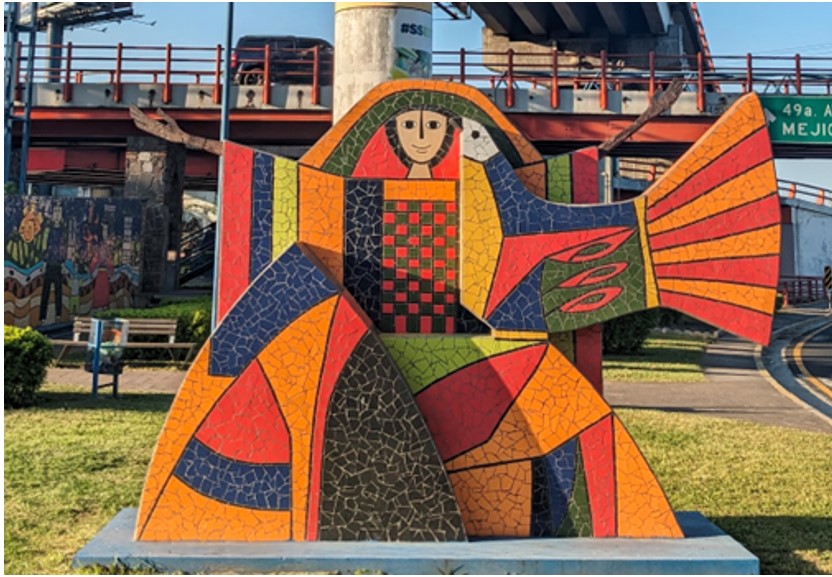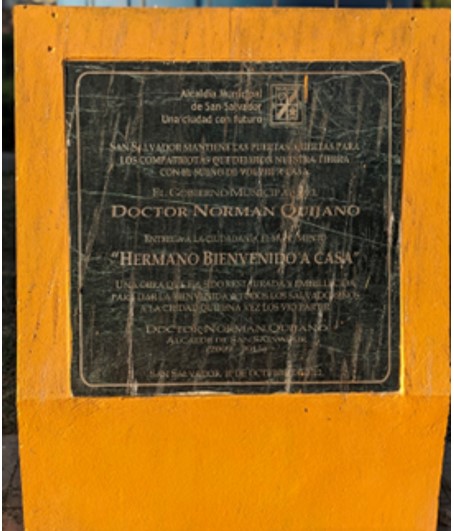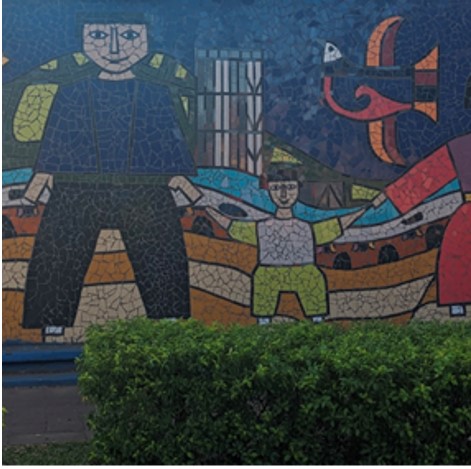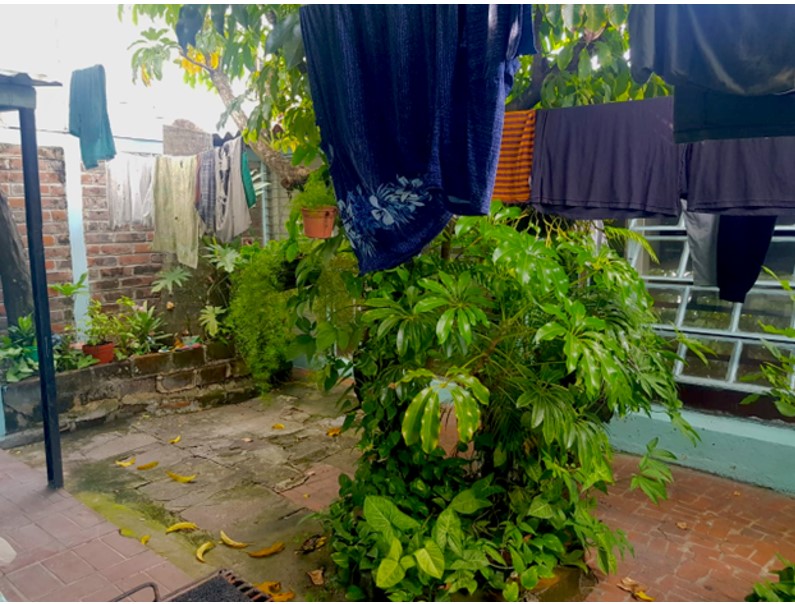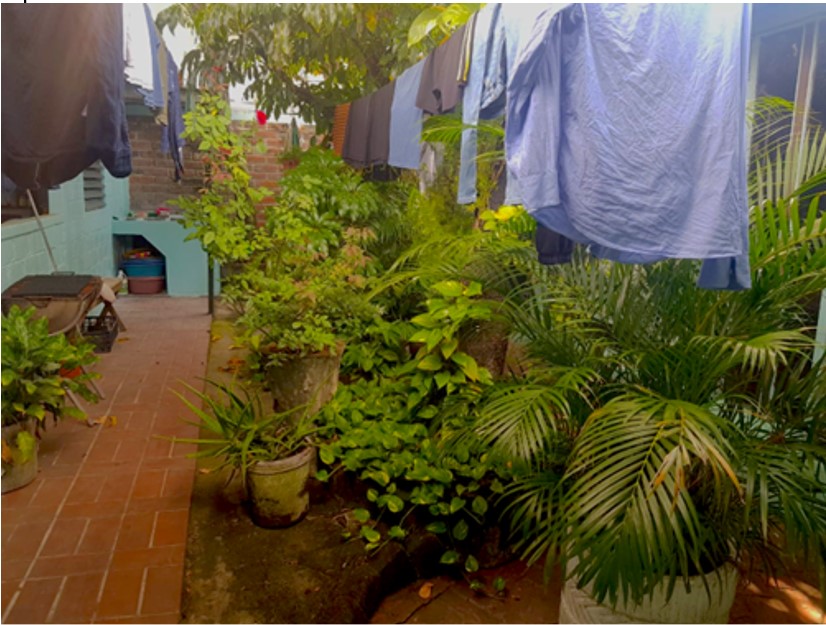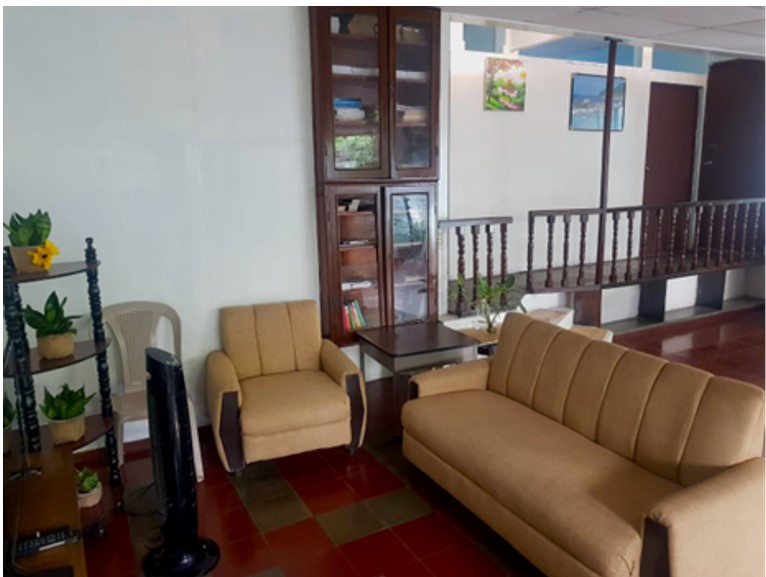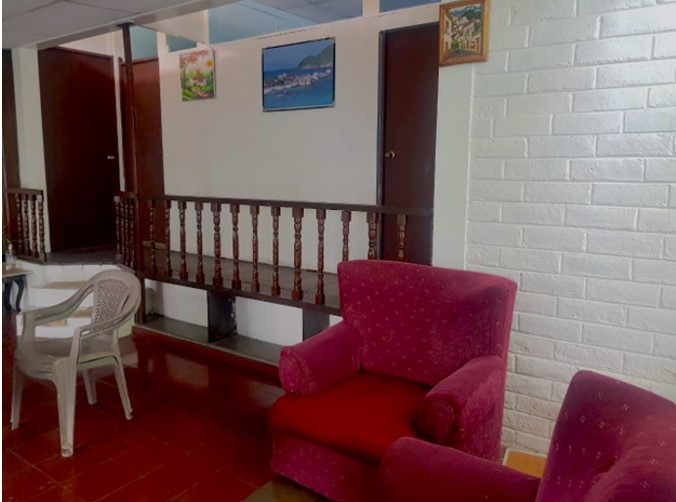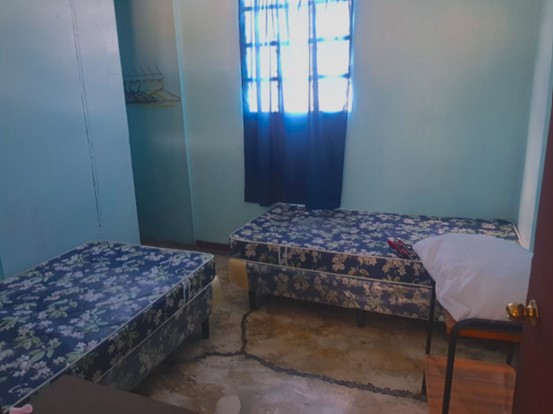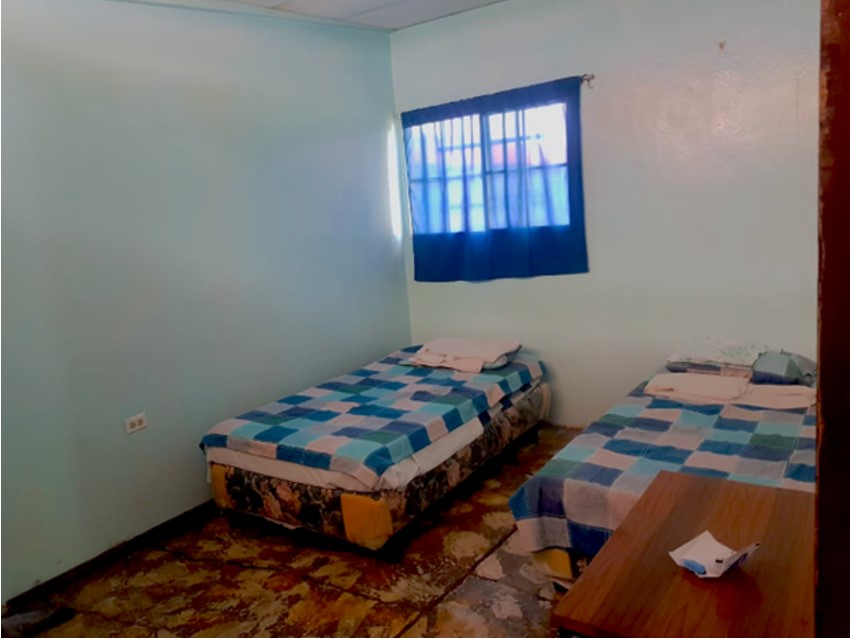A Letter from Joseph Russ, serving in the Northern Triangle of Central America
Fall 2023
Write to Joseph Russ
Individuals: Give online to E132192 in honor of Joseph Russ’ ministry
Congregations: Give to D500115 in honor of Joseph Russ’ ministry
Churches are asked to send donations through your congregation’s normal receiving site (this is usually your presbytery)
Subscribe to my co-worker letters
“The United States deportation system has created a forcibly uprooted population of people with deep and cohesive connections to each other and to the nation-state from which they were removed. … A phenomenon that I term, somewhat provocatively, the new American diaspora.” -Daniel Kanstroom, Aftermath p. xi
Dear friends,
The first night I landed in El Salvador, I was greeted by a wall of warm humidity leaving the airport. As we came into the city after 45 minutes on twisting roads through the forested mountains, we passed a large statue of colorful mosaic, a person with their arms outstretched and a smile on their face. I asked what it was and the driver said, “That’s the Hermano Lejano (“the brother far away,” in English), a monument welcoming Salvadorans living abroad back to El Salvador.”
In the early 2000s, the monument was renamed the Hermano Bienvenido a Casa (“welcome home brother”), to emphasize this welcome. This means the Salvadorans removed or deported forcibly, or those who return by their own choice.
This monument is a visible recognition of the new American diaspora.Daniel Kanstroom is a legal scholar who studies deportation and noted the growing population of deportees with strong connections in the U.S. People who had built careers, started businesses, married, had children, and had become part of communities, nonprofits and churches. People for whom the U.S. was home. The deportation system in the U.S. today creates the new American diaspora by removing people from their homes in the U.S. and deporting them to their country of origin.
When most of us think about deportation or migratory return, we think of a return to the status quo. “This person is from El Salvador, and they are being returned to El Salvador.” This seems like a reset to the way things were before their journey. A return to normalcy.
But Kanstroom’s observation speaks to a hidden reality. This is not a return to the way things were. This is a new and American diaspora.
While Kanstroom is mostly talking about people who have spent much of their lives in the United States, a close look at deportation and return reveals that the conditions under which people are returned to their countries of origin are not even close to normal. In the majority of cases, the situation they return to is much worse than when they left.
This is because the person themself has changed, and the country to which they return has changed.
Regardless of how much time someone has spent in the U.S., many had to sell their car, motorcycle, or even their home (and still take out massive loans) to be able to afford the visa application, plane ticket, or in some cases, the guide to lead them clandestinely across the border. If they haven’t made much money in the U.S., they arrive with massive debt and fewer resources than when they started. Many also leave behind family in the U.S.: spouses, children, siblings and parents. Even those turned away at the border may have family members who make it through, and deportation separates them.
In one interview for my thesis, a young man, his pregnant wife and his daughter were forced to flee El Salvador when gang members extorted them and assaulted him in broad daylight. They sold the equipment for their small business and their motorcycle and left on a harrowing journey in inhumane conditions. At the border, she was granted asylum. The young man was not.
He was expelled under Title 42 on the day it was set to expire before being blocked by a court order. In the U.S., she gave birth to their second child, and at the time of the interview, he had never met his own daughter in person. So he returned to El Salvador without his motorcycle, without any of the materials for his small business, in debt to the guide who helped them reach the U.S., to a place where the gang was hunting him and separated from his wife and child. His story is all too common; a Human Rights Watch report in 2018, “Deported to Danger” concluded that people deported back to El Salvador were at a greater risk of facing violence and poverty than when they left.
This is not a return to the status quo.
This is a situation of even more danger and poverty.
—
And in June of 2023, the number of people returned to El Salvador went way up.
In the U.S., most people are deported under Title 8. This is a policy which clarifies the rules for how a person is deported, what procedures are necessary and what rights they have. People to be deported under Title 8 are (supposed to be) interviewed to see if they may qualify for asylum. A country has to agree to receive people removed under Title 8 before they can be returned.
But during the COVID-19 pandemic, most people who were stopped at the U.S.-Mexico border were removed under Title 42. Title 42 was a public health policy that allowed the U.S. to remove people more quickly for health reasons, without the same safeguards. People removed under Title 42 did not get interviewed to see if they could be qualified for asylum. Similarly, a country has to agree to receive people under Title 42 before they can be deported to that country.
Because El Salvador did NOT receive removals under Title 42, many irregular Salvadoran migrants over the past couple years were removed under Title 42, and sent back to Mexico, because El Salvador would not receive them. But in May of 2023, Title 42 ended, and the number of deportees by plane jumped from 554 in April to 800 in May to 1,509 in June.
—
In El Salvador, the need for services supporting returnees is growing.
In some ways, El Salvador was a visionary country. In 1998, it was the first country in Central America to establish programs to receive returnees by providing food, transportation, psychosocial attention and other support. They called it the Bienvenido a Casa Program. This was in response to the two 1996 laws passed in the United States which dramatically expanded the country’s deportation powers. The resulting mass deportations transplanted the gangs of Los Angeles to El Salvador, where MS-13 and the Barrio 18 grew into the threat they pose today.
With that said, in practice these programs haven’t met the needs of returnees. The Hermano Bienvenido a Casa is a beautiful promise, but there’s work to be done. In the meantime, other organizations and churches have stepped in.
In collaboration with the International Red Cross Committee, the Reformed Calvinist Church of El Salvador (IRCES) spent several years receiving returnees and displaced people in a shelter while the Red Cross helped find housing and work for them. IRCES served around 300 people in this program, and the shelter is still equipped to continue receiving people, though the Red Cross program is currently paused.
Work like this is a substitute for the role of the state in protecting its people. It responds to the ways deportation in the U.S., impacts people’s relationships with their family, community, church and country. It is a prophetic message that the church shares as it listens to the voice of the returnee. The message is one of nuance and balance that may sound like a contradiction.
Too often, deportation is a grave injustice that has ripped people from their homes, families and communities. At the same time, churches, nonprofits and people are working tirelessly to welcome people home, to make sure that El Salvador is a country people can return to, and a country they don’t need to leave in the first place.
To that end, IRCES doesn’t stop at providing direct support to returnees, but is organizing a Central America Mission Network to bring together churches and NGOs in El Salvador, Guatemala, Honduras, Mexico and the U.S. Together, we can unite our voices and advocate for both a better treatment of migrants outside their countries of origin, and fight for a home to which people can return. We can work with one another to change the policies that impact migrants and change the conditions that force them to leave. But only together.
This is a vision born of the experience of having to flee, facing rejection in the U.S., and struggling to build a home in their country of return. This is the vision of the new American diaspora. It is the vision of a world that truly welcomes the hermano lejano, the vision of a true bienvenida a casa.
Joseph
Please read this important message from Director of World Mission Rev. Mienda Uriarte
Then the King will say to those at his right hand, ‘Come, O blessed of my Father, inherit the kingdom prepared for you from the foundation of the world; 35 for I was hungry and you gave me food, I was thirsty and you gave me drink, I was a stranger and you welcomed me, 36 I was naked and you clothed me, I was sick and you visited me, I was in prison and you came to me.’ Matthew 25:34-36
Dear friends,
Great things are happening in World Mission! As you know from the letters you’ve been receiving, our mission co-workers are at the forefront of showing us what Matthew 25 looks like in the U.S. and in the wider world. They are addressing issues related to eradicating systemic poverty, building congregational vitality and dismantling structural racism. Together with our partners, mission co-workers are engaged in life-transforming ministries in 80 countries around the world. Here are just a few examples:
As an education consultant in the Democratic Republic of Congo, José Jones assists the Presbyterian Community of Kinshasa (CPK) education department in the development, implementation and evaluation of strategic plans to strengthen the church’s primary and secondary education programs for more than 350 schools.
Based in Manila, Rev. Cathy Chang works closely with the United Church of Christ in the Philippines (UCCP) and other partners in ministry to engage programs and networks across Asia that advocate for people vulnerable to forced migration and human trafficking.
Nadia Ayoub works alongside our Greek partners as they faithfully hold to the biblical call to welcome the stranger. Nadia serves with Perichoresis, a ministry of the Evangelical Church of Greece that provides housing and support to refugees; most of whom have come to Greece from Arabic-speaking countries.
Joseph Russ strengthens and supports a network of partners working in El Salvador, Guatemala and Honduras to address migration issues in the Northern Triangle. Based on the needs people on the ground identify, Joseph empowers U.S. congregations to engage in advocacy related to Central America and immigration reform.
Revs. Drs. Noah Park and Esther Shin serve as professors at the Evangelical Theological Seminary in Cairo (ETSC). ETSC graduates work toward revitalizing congregational ministries in Egypt and work with refugee and peace ministries in various countries in the Middle East.
Please consider giving an extra gift this year to support our mission co-workers as they walk alongside our partners and help shape a more life-giving, equitable and hopeful world!
Prayerfully,
![]()
Rev. Mienda Uriarte, Director of World Mission
Presbyterian Mission Agency
Presbyterian Church (U.S.A.)
To give online, visit https://bit.ly/23MC-YE.
Honorary gifts can be made by checking the box and writing the mission co-worker’s name in the comment field online.
![]() You may freely reuse and distribute this article in its entirety for non-commercial purposes in any medium. Please include author attribution, photography credits, and a link to the original article. This work is licensed under a Creative Commons Attribution-NonCommercial-NoDeratives 4.0 International License.
You may freely reuse and distribute this article in its entirety for non-commercial purposes in any medium. Please include author attribution, photography credits, and a link to the original article. This work is licensed under a Creative Commons Attribution-NonCommercial-NoDeratives 4.0 International License.
